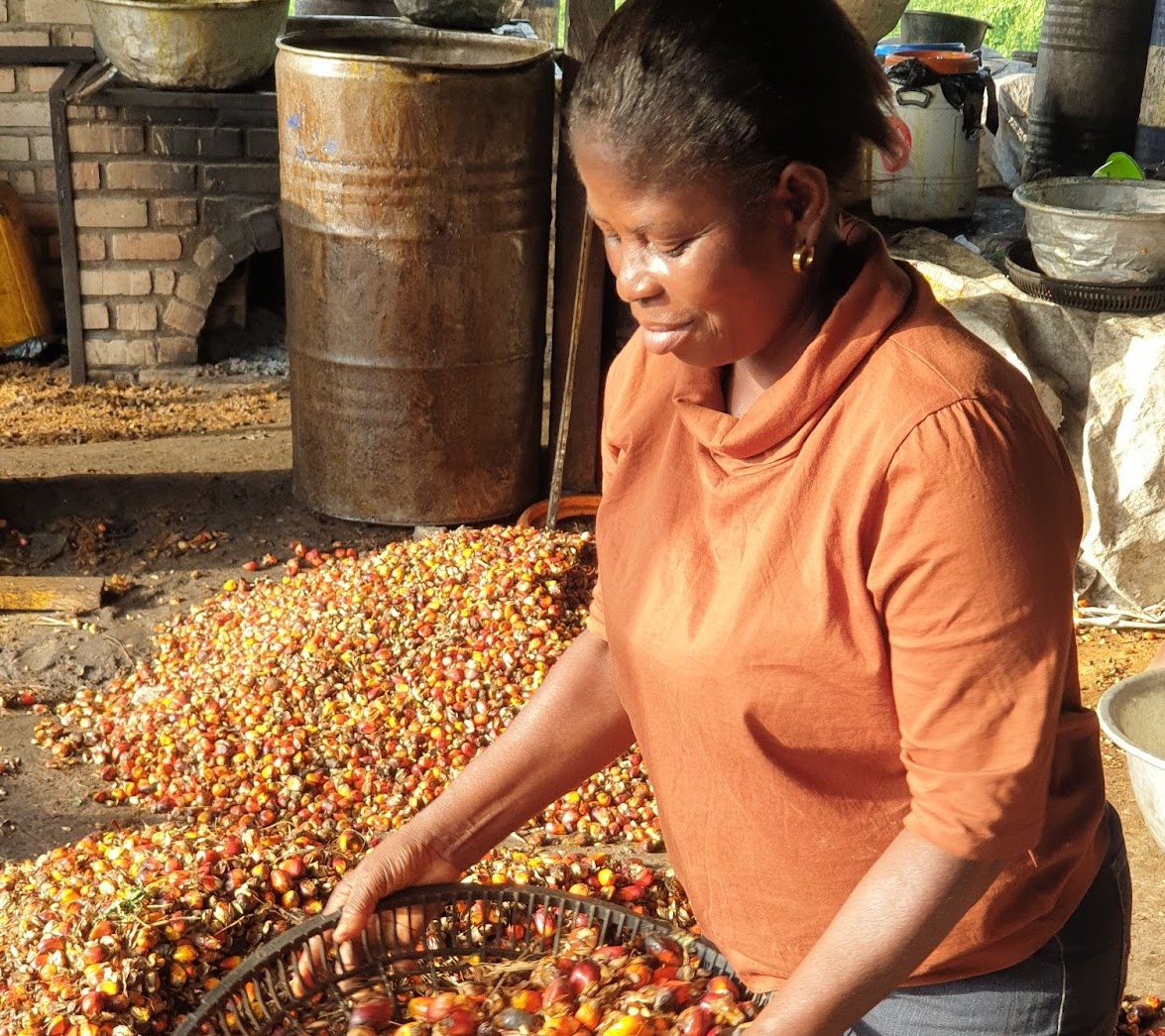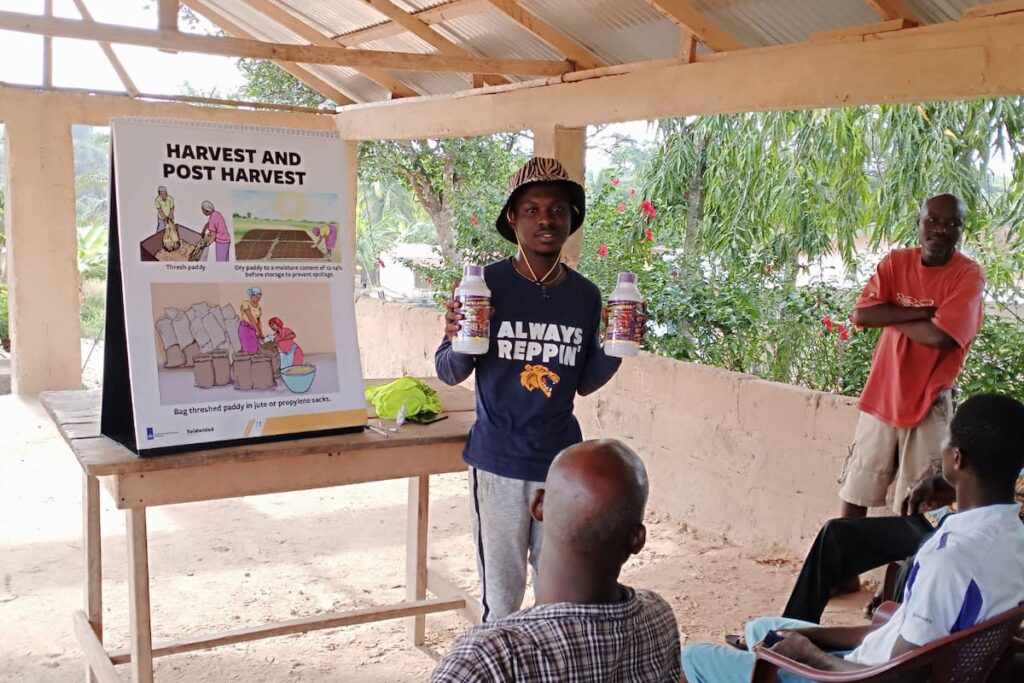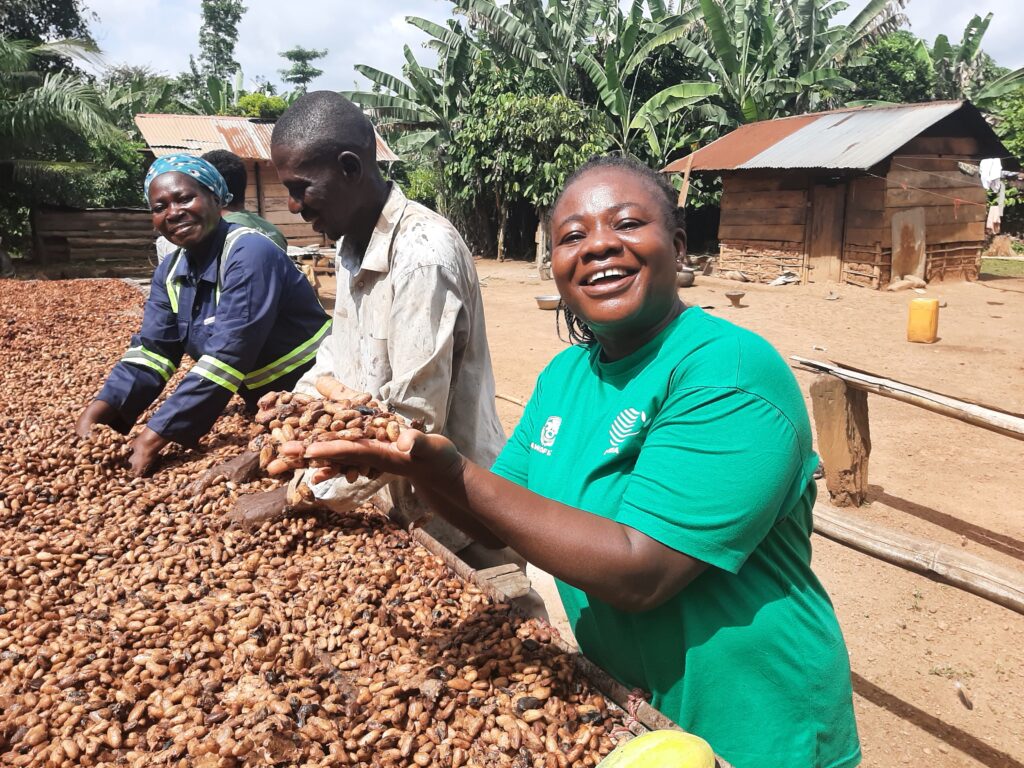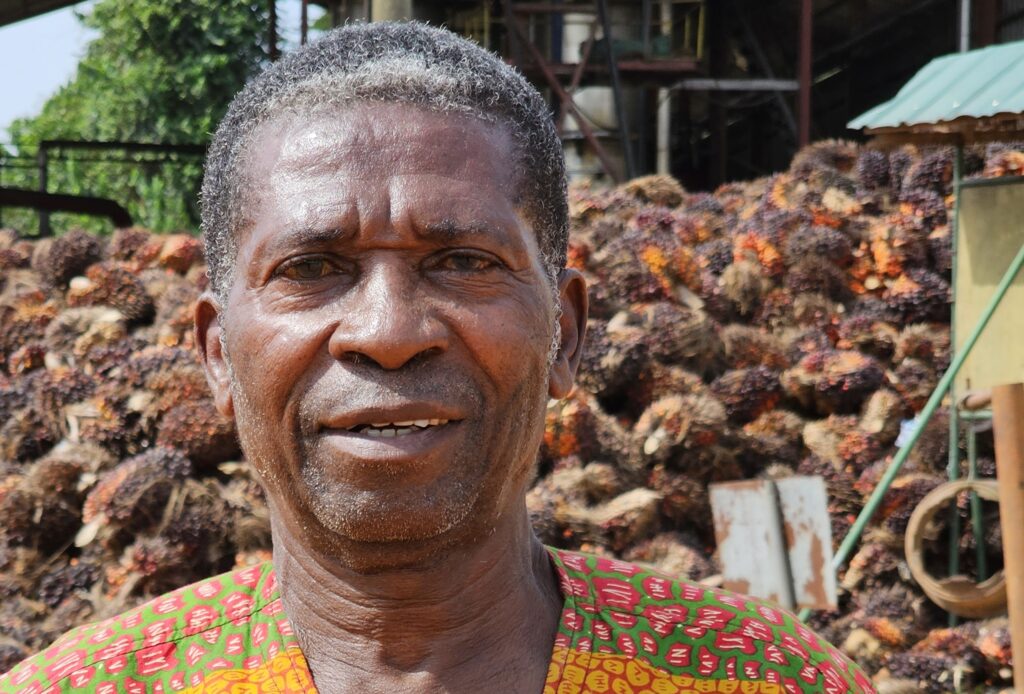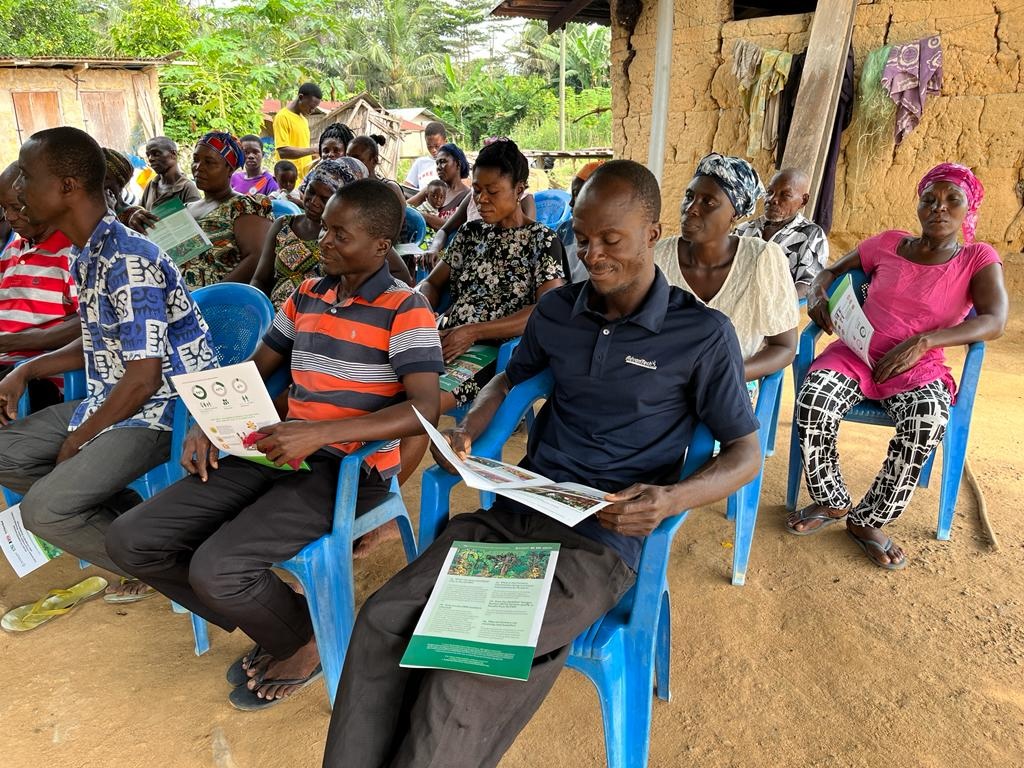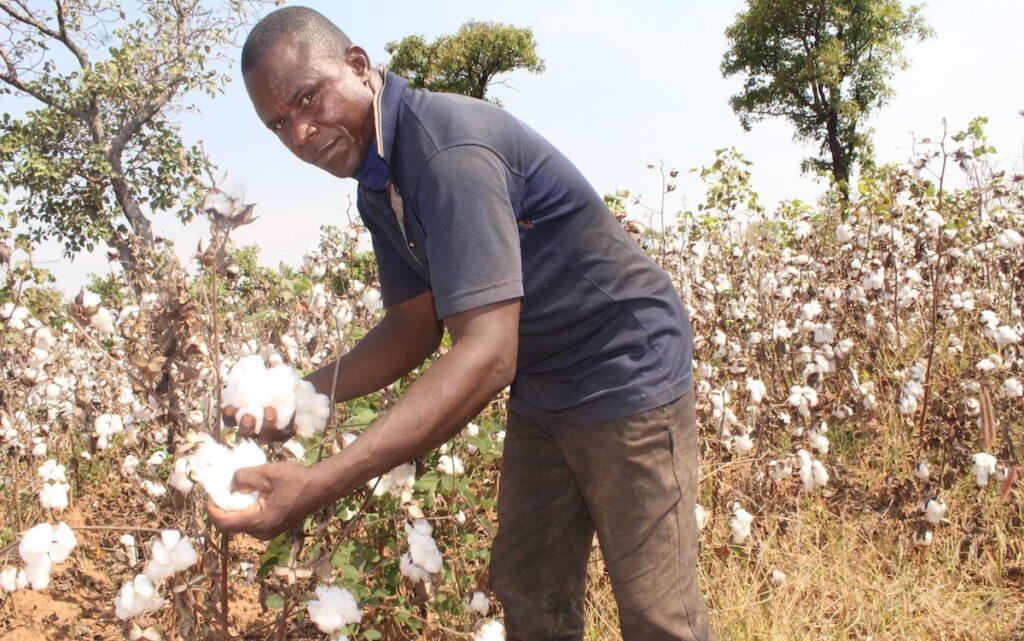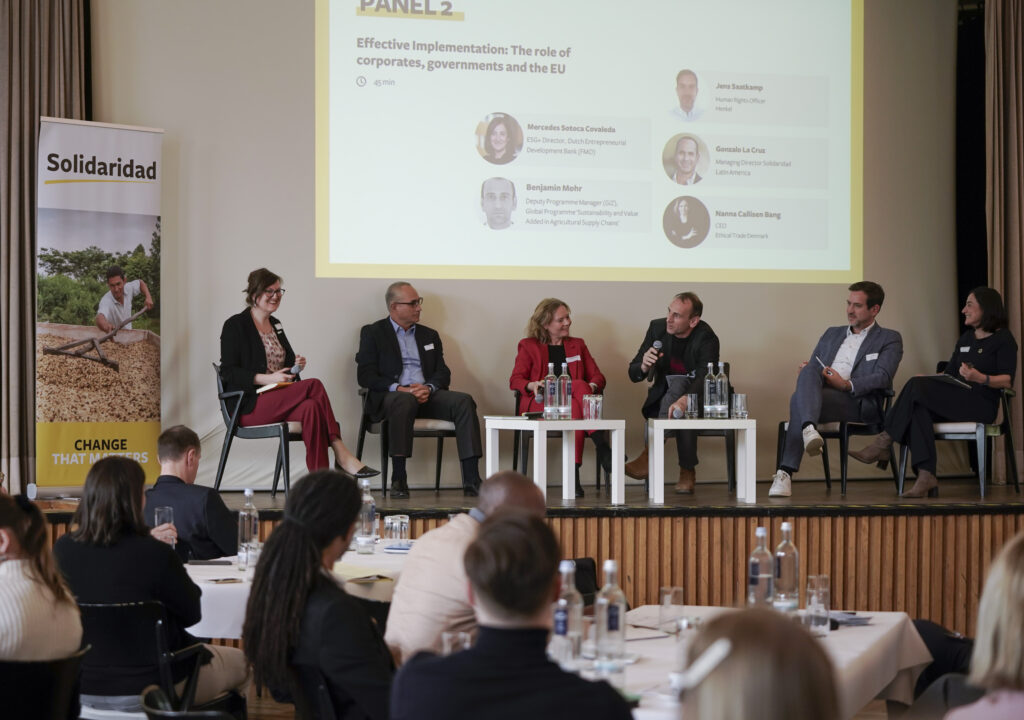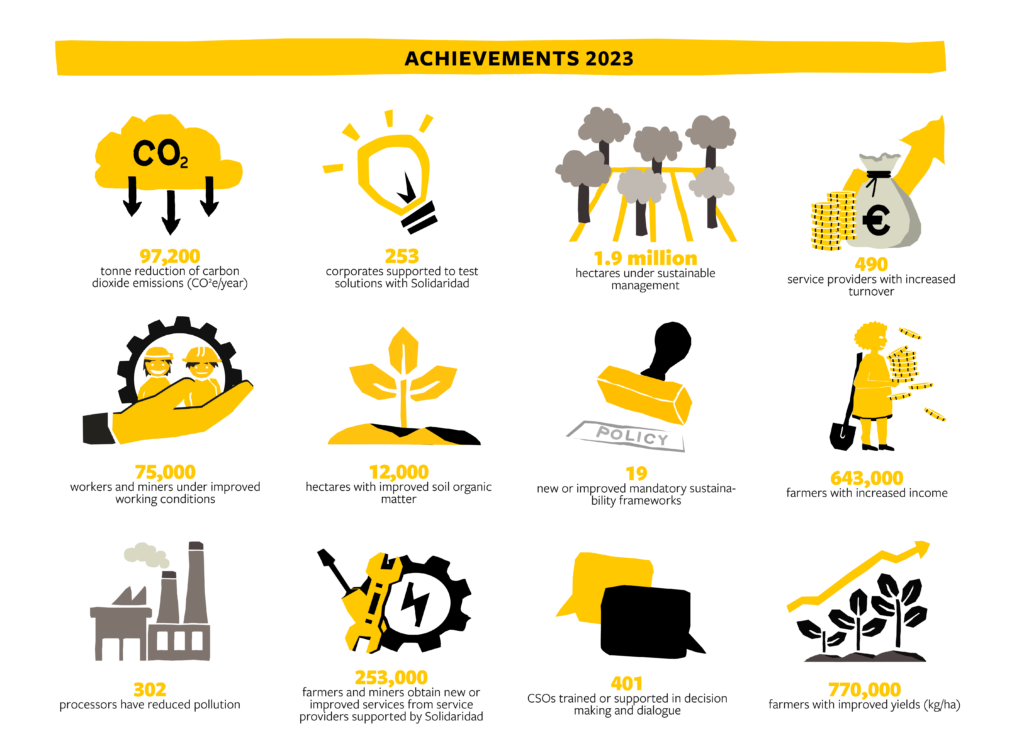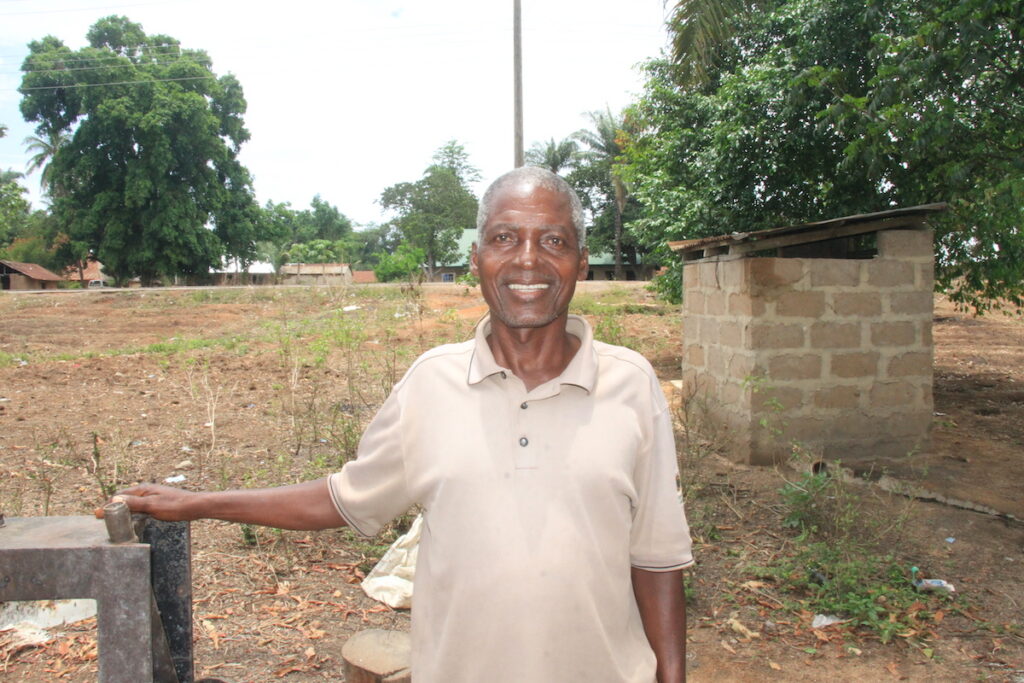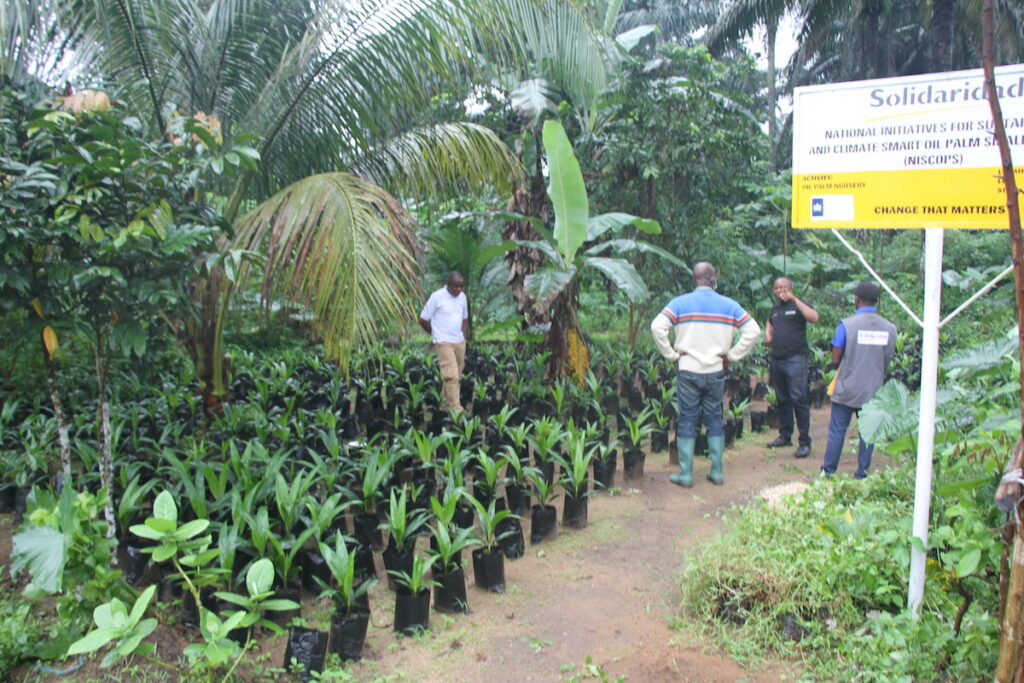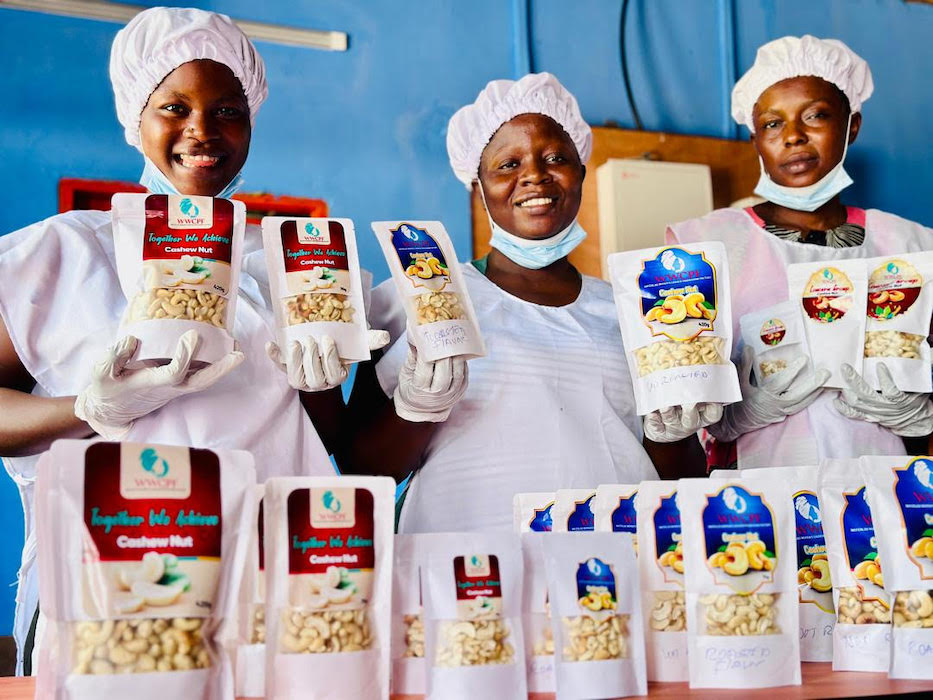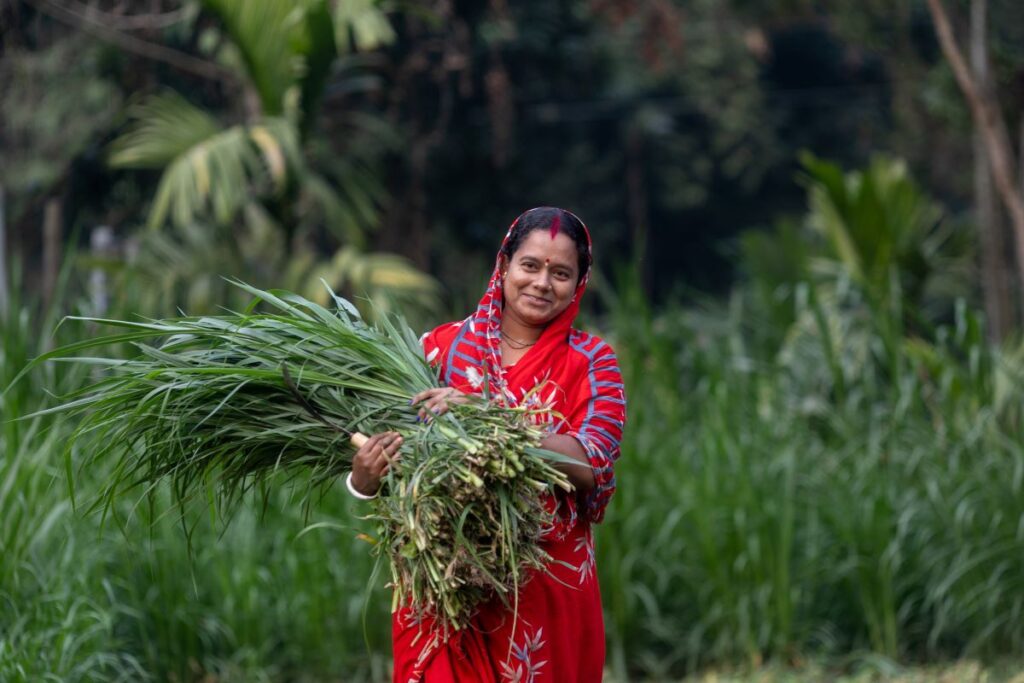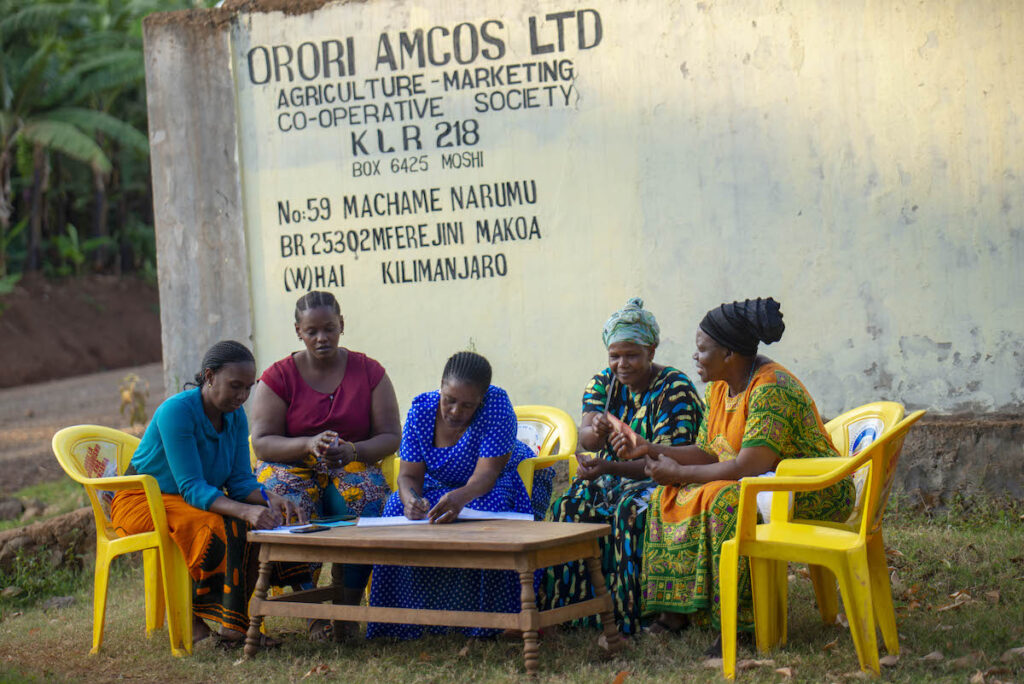Ruth is one of 28 beneficiaries of the training in best management and good milling practices that Solidaridad offered to farmers and artisanal millers in her area. This support was part of the implementation of the Sustainable West Africa Palm Oil Programme (SWAPP) funded by the Embassy of the Kingdom of Netherlands in Accra and the Swiss government through its State Secretariat for Economic Affairs.
Ruth attributes her recent success with her oil palm business to applying the knowledge acquired from the training.
Lately, I see a marked improvement in the size of the fresh fruit bunches that I harvest after applying fertilizer in the right quantity, undertaking pruning and circle weeding at the right time and observing appropriate spacing between crops.
Ruth Sackey, Oil Palm Farmer
At her mill, Ruth owns two screw presses as well as a nut and fibre separator. With these, she processes all the fresh fruit bunches that her farm produces at an average of 1,500 bunches per month. From these, she extracts about 3,750 litres of palm oil at a value of 24,000 cedis.
Diversifying to improve income
Apart from the oil palm farm and processing mill that she owns, Ruth has a diversified source of income. She has been doing bulk trading of palm oil for the past five years and cultivates plantain on an eight-acre field.
Ruth, who dropped out of high school in her second year, says she now earns enough money to give her children the best education she missed.
With the good business management principles learned from Solidaridad under the SWAPP intervention, Ruth is now able to keep good records and make sound investment decisions, including ploughing back some of her profit into her business.
Providing access to credit through Village Savings and Loan Associations
When necessary, Ruth takes credit from the Village Savings and Loan (VSLA) scheme that she belongs to. Under the SWAPP intervention, Solidaridad introduced this scheme of revolving funds to Ruth and 39 others in her community, mostly women, to improve their savings culture and mobilise credit for their agribusinesses.
The scheme provides a reliable source of credit at an affordable interest rate payable within three months. The beneficiaries prefer loans offered by the VSLA to that offered by financial service providers due to the perceived prohibitive interest rate of the latter.
While some of the beneficiaries use the credit to buy fresh fruit bunches and process them into palm oil, others support their children’s education with it and still, a few use it to support their housing project.
“Since October 2019, I have accessed a credit of 7,000 cedis (approx. USD 730) from the VSLA group. I used one part to pay for the cost of farm labour services and the other part to handle pressing family needs without touching my working capital,” says Ruth.
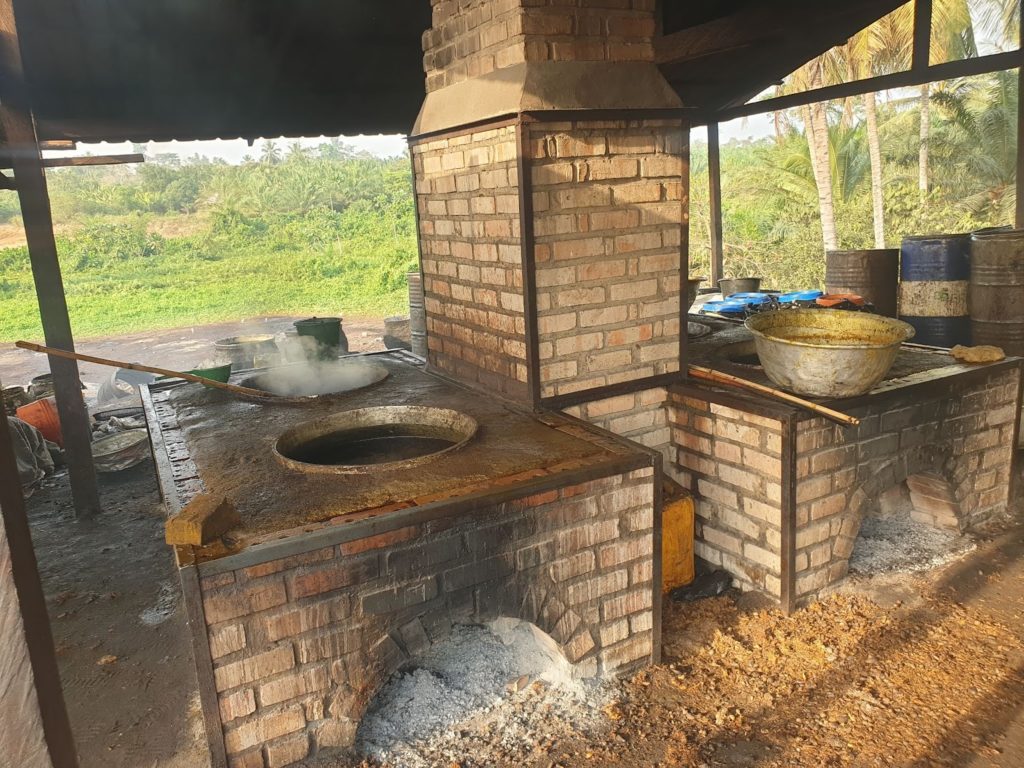
Oil palm millers benefit from food safety training to improve their production
She is also a beneficiary of a partnership Solidaridad formed with the Food and Drugs Authority to train artisanal palm oil producers to enhance the quality of their produce.
The training on food safety covered such topics as hygienic sterilisation and digestion of palm fruits, identifying food safety hazards during processing, the use of potable water for palm oil processing, waste handling, test management techniques, cleaning and siting of milling equipment, and personal hygiene of workers at the mills, among others.
When officials of the Food and Drugs Authority visited some oil palm processing mills under the auspices of Solidaridad, Ruth learned more from the visitors. She did her best to apply much of the knowledge she gained from them.
“When they visited my site, they asked me to raise the concrete floors on which I keep my palm fruits before processing them. I was educated on the right kind of containers for storing palm oil and the need to keep them clean. They also taught me how to keep a low free fatty acid, avoid any contaminants and keep the palm oil in the right taste, smell and colour. I adhered to all of them,” she says.
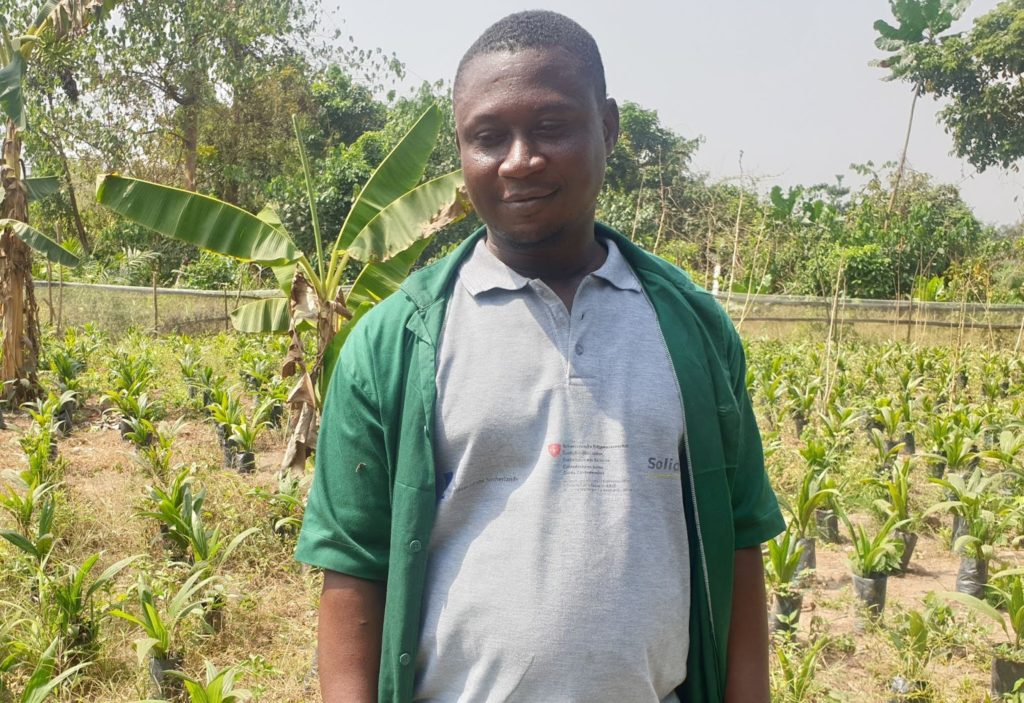
Entrepreneurship in Ghana’s Palm Sector
For James Nyarko, participation in the Sustainable West Africa Palm Oil Programme has been transformational. From struggling to make ends meet as a cocoa farmer to a thriving oil palm farmer and entrepreneur, James isn’t wasting a moment.
Additionally, Ruth has built a toilet facility around the milling site for easy access by her workers. She has even invested in an improved cookstove that utilizes minimal wood fuel and protects her and the workers from direct exposure to smoke.
Her next target is to construct a wall around her business to ward off stray animals before the visitors return in March this year.
Today, she engages more than 50 casual workers and three staff at her oil palm processing mill. This is besides the 10 people she employs at her oil palm field. She hopes to continue to work hard to receive the accreditation of the Food and Drugs Authority to guarantee adherence to good food safety standards.
“I owe my success to the support I received from Solidaridad. I am really grateful,” says Ruth.
The Sustainable West Africa Palm Oil Programme seeks to contribute to the transformation of the oil palm sector in West Africa by promoting best management and milling practices to increase the incomes of smallholder farmers and processors and generate economic growth and jobs.

